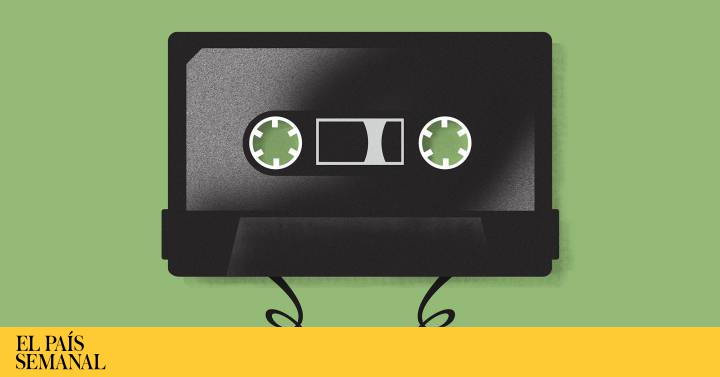Nostalgia?
We all feel it, but what?
Nostalgia is like a rear-view mirror that reflects a particular feeling of a time or place, an emotional state of the past and, for the moment, the longing for a future that is far away.
Whether it is the memory of a first kiss, a photograph yellowed by the years or an object that remains of that time.
The Internet is a nostalgia-generating device: just click on a menu to start the soundtrack of our youth.
“Living with the soul clinging to a sweet memory that I cry again”, says the tango
Volver,
with an ironic distance.
Today we know that nostalgia is a complex emotion, predominantly — but not exclusively — positive, that encompasses much more than sentimentality and that it could give us a better understanding of the present, instead of clouding it with the ghosts of the past.
Nostalgia is part of our poetic essence.
Homer describes it in the
Odyssey
in the reflections of Ulysses, who, once the Trojan War was consummated, during his journey home, to maintain poise in his contests with Cyclops and Lastrygonians or to circumvent Circe's spells, strengthens with the longing for the return to Ithaca and the meeting with his family.
Without nostalgia, says novelist Milan Kundera, the
Odyssey
would be meaningless, adding: "Let's underline it: Ulysses, the greatest adventurer of all time, is also the greatest nostalgic."
But it was not until 1680 that the term nostalgia appears as such, invented by a medical student at the University of Basel, Johannes Hofer, who, by linking the Greek words
nóstos
(return home) and
algia
(suffering), describes it in his doctoral thesis as a condition that afflicted Swiss soldiers in combat, due to their desire to return home.
Hofer lists physical symptoms ranging from continuous crying, fainting, fever, heart palpitations and even suicidal thoughts.
From then on it is labeled as a cerebral affliction - a view that persisted until the middle of the 20th century.
Current studies converge in that nostalgia is not synonymous with melancholy or depression, it is rather a stimulating resource - as Homer thought it.
That not only does it not cause medical symptoms, but more often than not, it is activated to counteract them.
In fact, the psychological threat generates nostalgia, which is a source of resilience and well-being.
Psychologist Constantine Sedikides, from the University of Southampton (England), and colleagues have observed that it is a vital component of mental health that motivates us and that nurtures self-esteem;
it can act as a psychological resource to bond with someone or something — we generally conjure up significant people and events when we feel it.
It allows us to go beyond the usual dichotomies to go beyond the limits of the self and the current configurations of the world.
A primary psychological need for humans is to cope with the inevitability of our own death.
According to Clay Routledge, a psychology researcher at North Dakota State University (United States), nostalgia is a resource that provides us with meaning, works as a shield against existential challenges, and can benefit us at times when we question the meaning of life .
It represents a reserve of emotions in memory, which we can consciously access and unconsciously use continuously during daily life to reinforce the feelings of our past, which help us face the future.
Kentaro Oba and colleagues from the Tokyo Metropolitan University have been able to map it through brain scans performed on university students who, simultaneously, were presented with images related to their childhood and with a high probability of evoking nostalgic feelings.
Their findings show the activation of the regulatory areas of memory and reward, which play a role in the experience of nostalgia.
Nostalgia spontaneously generated experiences that they might not have been able to remember if they had deliberately tried.
Likewise, the fuzzy memories provided double gratification, both for familiarity and novelty.
In short, the past can be evoked, but not recovered.
As the psychoanalyst Néstor Braunstein points out in his treatise on memory, despite the fact that nostalgic memories do not restore what was lost, they project it forward and favor the gestation of something new, an invention.
On the other hand, it alerts us to the fact that, however, the emotional tone of nostalgia is predominantly positive, it can also introduce the risk of stagnation.
An example from the Bible that he mentions is Lot's wife, who, trapped in the past, filled with longing, looks up at burning cities and becomes a pillar of salt.
Her nostalgic reaction so human, with which we can identify, produces a stupor that immobilizes her and makes life in another place and time impossible.
The poet Valéry, quoted by Braunstein, used to say that "memory is the future of the past."
David Dorenbaum is a psychiatrist and psychoanalyst.





/cloudfront-eu-central-1.images.arcpublishing.com/prisa/QP2XO6PKYVB3REJWNX5RNCQ5R4.jpg)








